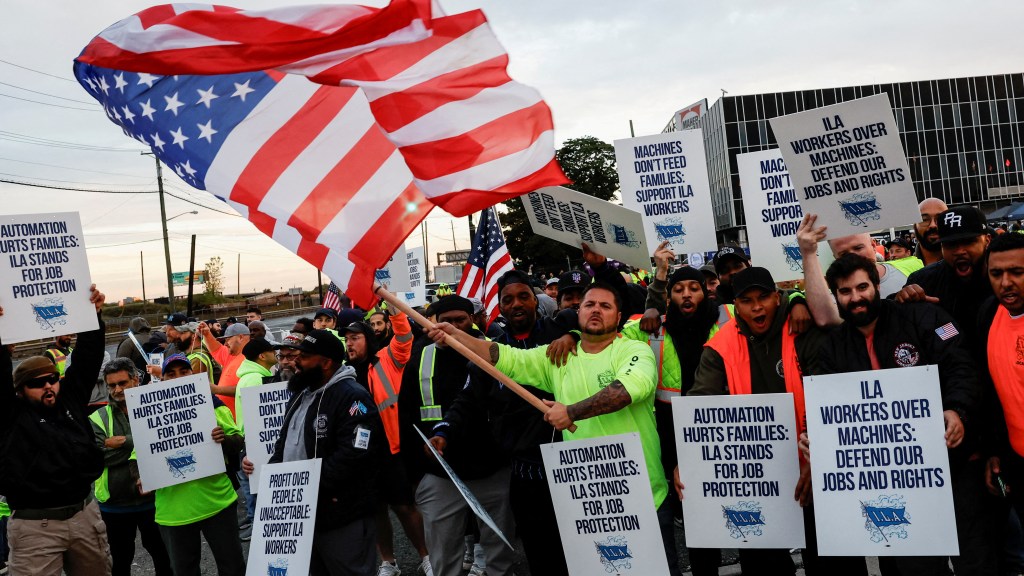Strike by US Dock Workers Disrupts Global Supply Chains
Tens of thousands of dock workers across the east and gulf coasts of the United States have initiated a strike, leading to significant disruptions in global supply chains.
The strike, which affects 36 ports from Maine to Texas, is causing delays in container traffic, impacting nearly half of the country’s ocean shipping capabilities.
Starting in the early hours of Tuesday morning, the industrial action was triggered after negotiations between the International Longshoremen’s Association (ILA) and the United States Maritime Alliance (USMX) reached a standstill.
The ILA, representing approximately 45,000 dock workers, turned down a proposal from USMX that included a 50 percent salary increase spread over six years and limitations on automation. The union is demanding a 77 percent pay increase over the same period along with a total ban on automation, arguing that such increases are essential due to inflation and prolonged periods of modest wage growth.
Dock workers currently earn a base salary of about $81,000 annually, with some reportedly earning upwards of $200,000, inclusive of overtime.
This strike marks the ILA’s first major action since 1977.
According to Sea-Intelligence, a Copenhagen-based shipping consultancy, if the strike continues for two weeks, it may take until 2025 for ports to resume normal operations.
The National Association of Manufacturers has warned that this industrial action will disrupt manufacturing supply chains across the nation. “Billions of dollars of goods—from food to vehicles to electronics—depend on access to the east and gulf coast ports,” stated Jay Timmons, CEO of the trade association.
In response to the strike, businesses including retailers and logistics firms are implementing measures to lessen the impact. Ronnie Robinson, the chief supply chain officer at Designer Brands, the parent company of DSW, noted that they have rerouted half of their typical imports from the east coast to the west coast. He emphasized the importance of timely deliveries to clients such as Macy’s, Nordstrom, and Dillard’s, even at a higher shipping cost.
German chainsaw manufacturer Andreas Stihl is also devising contingency plans to maintain export operations from its facility near the Port of Virginia, which serves over 80 countries.
Ikea furniture manufacturer Inter Ikea has stated it is monitoring the situation closely but has not yet commented on potential supply chain constraints due to the strike. They expressed hope for a quick resolution to the negotiations.
JP Morgan analysts project that the economic impact of the strike could reach approximately $5 billion daily, as shipments of food, retail items, and other products are stalled from major terminals in cities such as New York, Baltimore, and Houston.
Bradley Saunders, an economist at Capital Economics, expressed that while the strike’s impact at east and gulf coast ports might not lead to major economic upheaval, many retailers have preemptively prepared for such an event. He added that, given the proximity to the upcoming elections, President Biden may have to intervene and enact back-to-work legislation if negotiations do not progress.
A White House official confirmed that the Biden administration has been in consistent communication with both the ILA and USMX in efforts to facilitate the negotiation process and achieve a swift resolution to the dispute.




Publicar comentario